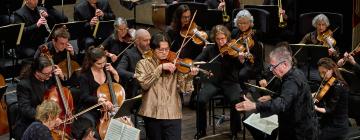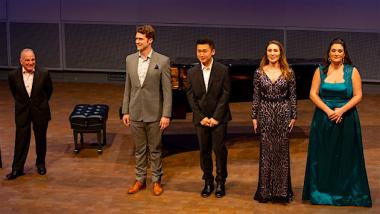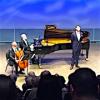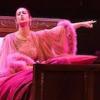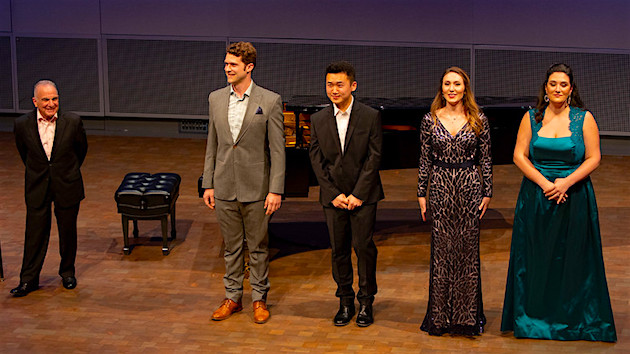
The final concert of the 2019 Schwabacher Recital Series Wednesday evening responded to unusual challenges by presenting a remarkably successful event in the Wilsey Center for Opera’s Taube Atrium Theater.
Pianist Martin Katz, soprano Patricia Westley, mezzo-soprano Ashley Dixon, tenor Zhengyi Bai, and bass-baritone Christian Pursell performed a varied and generous all-lieder program consisting of selections from Hugo Wolf’s Mörike Lieder, Samuel Barber’s Hermit Songs, and five of Brahms’s Deutsche Volkslieder (German Folksongs).
These recitals, established by the late Merola Opera Program co-founder James Schwabacher, provide a debut or performance opportunity to young artists from the Merola and Adler programs. Of the four participating artists, Westley is a Merolina, the other three are Adler Fellows.
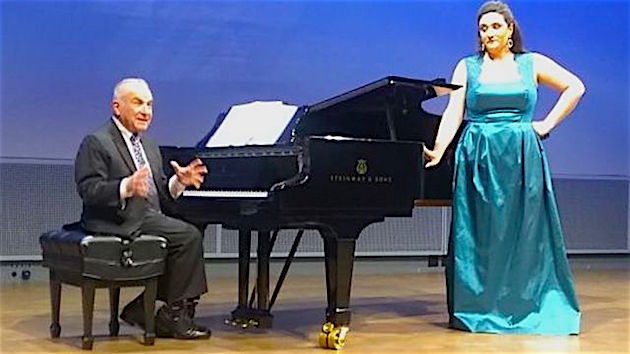
Katz — a distinguished pianist, accompanist, and music educator — has often participated in Merola training, workshops, and performances, but this time an engagement in Japan delayed his arrival to the event which he was to organize, prepare, coach, narrate, and accompany. Given only three days in the city before the concert, Katz had a limited time for the preparation, but — as usual — his presentation and accompaniment were brilliant.
The other variable for the recital was the cancelation by the originally scheduled soprano just 10 days before the event, necessitating a quick substitution, and Westley came to the rescue. Were the listener unaware of the situation, the soprano’s performance would have received high marks; given the limited time to prepare for semi-staged performances of lieder without a score, Westley was most impressive.
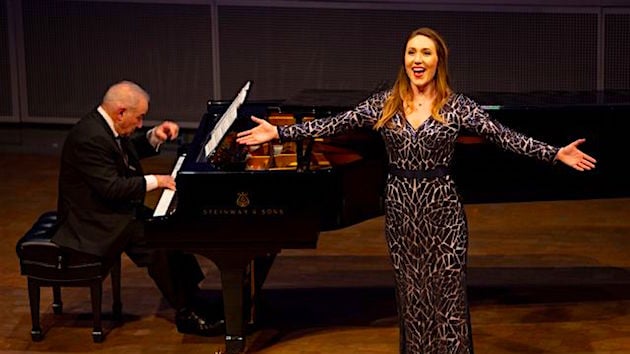
From the substantial Wolf song “To an Aeolian Harp,” with its “lovely cry ... sweet terror ... and sudden stirring of the soul,” through Wolf’s rapturous “Insatiable Love” and “Song of the Wind,” Westley sang with the right projection (in the Atrium where even Katz’s knowing accompaniment couldn’t prevent an erroneous balance, the piano often stepping on vocal lines), fine diction, and the kind of presence rarely exhibited by young artists.
Former Merolina Dixon, Grand Finals winner of the 2018 Metropolitan Opera National Council Auditions, came to the fore with Wolf’s “The Spirits on Lake Mummel,” with Eduard Mörike’s dramatic text, the wonderfully romantic music clearly articulated, Dixon’s big voice kept in check, appropriate to the venue.
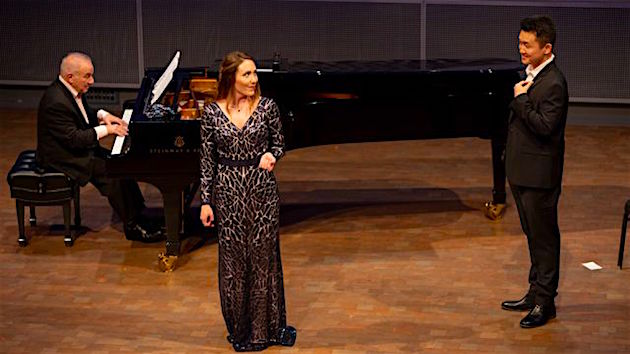
Bai, who started his music career as a pianist in China, has in a short time successfully “retrained” as a tenor, and from opening the Wolf section of the evening (the entire first half of the concert) with “The Gardener” to the jocular “Confession” and the romantic “Encounter,” he sang as not only an accomplished lieder artist but also as someone born to the stage. Later in the evening, Bai sang the Brahms “Sister Dear” duet with Westley, turning lieder into a mini-drama.
Second-year Adler Fellow Pursell, who has already appeared in four S.F. Opera productions — including as Sir Walter Raleigh in Roberto Devereux — had both his fellow singers and the audience enthralled, and at times in stitches, from Wolf’s “The Hunter” to Barber’s “Church Bell at Night” and hilarious “The Monk and His Cat.”
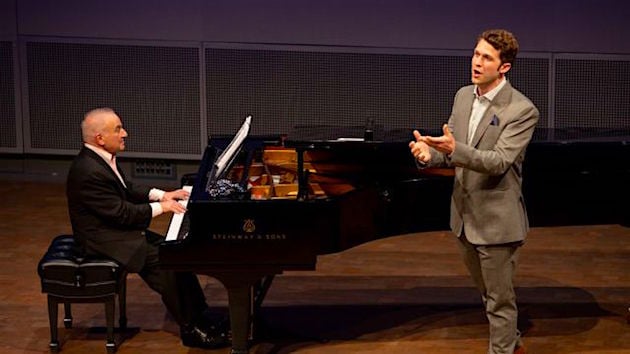
The Hermit Songs are set on actual marginalia by medieval monks copying the Bible and scribbling notes and poems on the margins of the manuscripts. Pursell made a big hit with “Promiscuity,” the entire text of which is “I do not know with whom Edan will sleep / But I do know fair Edan will not sleep alone.”
The evening built to the Brahms songs — performed after the men, following Katz’s example, got rid of their ties “because these are supposed to be folksongs.”
Pursell shone in “My lassie’s mouth is like a rosebud,” Westley and Bai charmed with the duets “My little love, you should not go barefoot” and “Sister Dear,” and Dixon excelled with “Down in the valley there.” All four joined in the closing Brahms song, “Futile Serenade,” the title giving lie to the evening itself.
Kudos to the Merola Program for making good on a promise to give credits to translators of song texts; a full page in the program now details the information that was neglected at times in the past.
